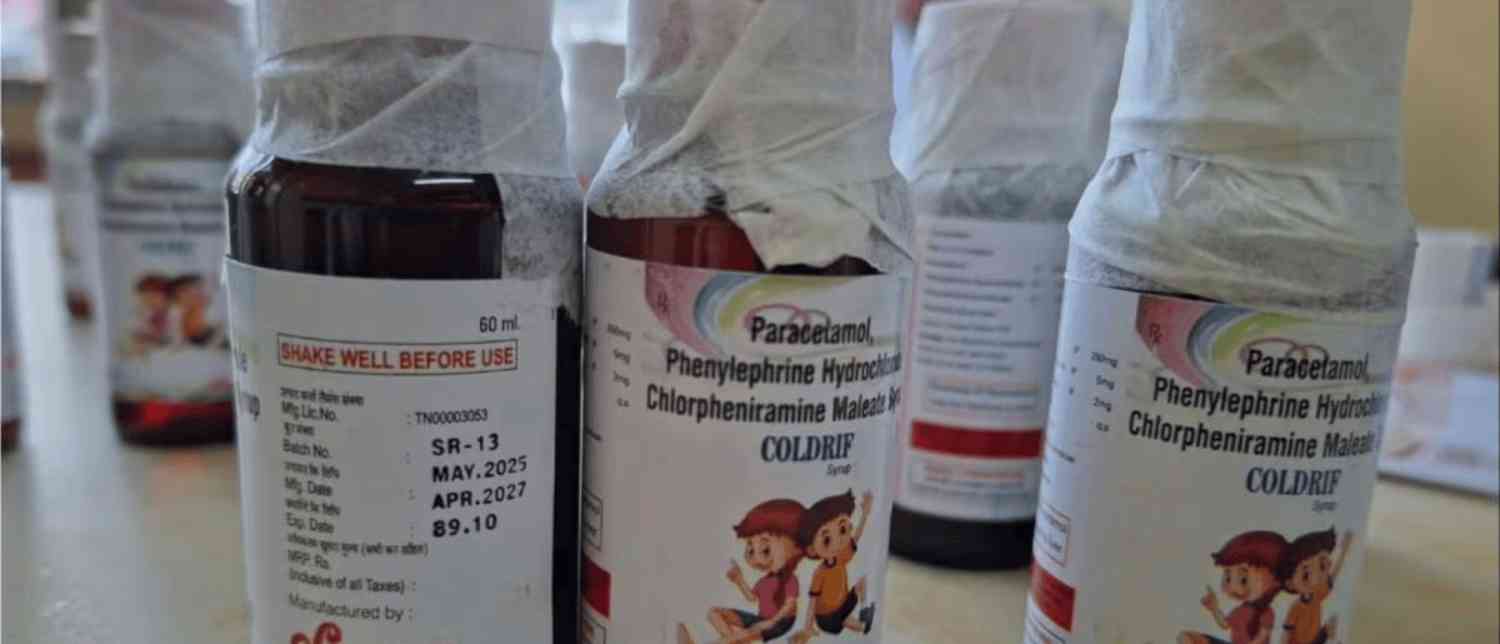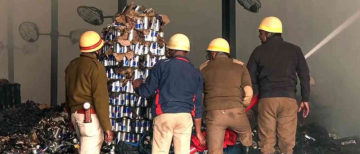The tragedy unfolding in Madhya Pradesh’s Chhindwara district has deepened with the death toll from the consumption of an adulterated cough syrup climbing to 14. What began as a series of unexplained child deaths in early September has now spiraled into a full-blown criminal investigation spanning multiple states, leading to the arrest of a government doctor and the suspension of a pharmaceutical product suspected to be at the heart of the disaster.
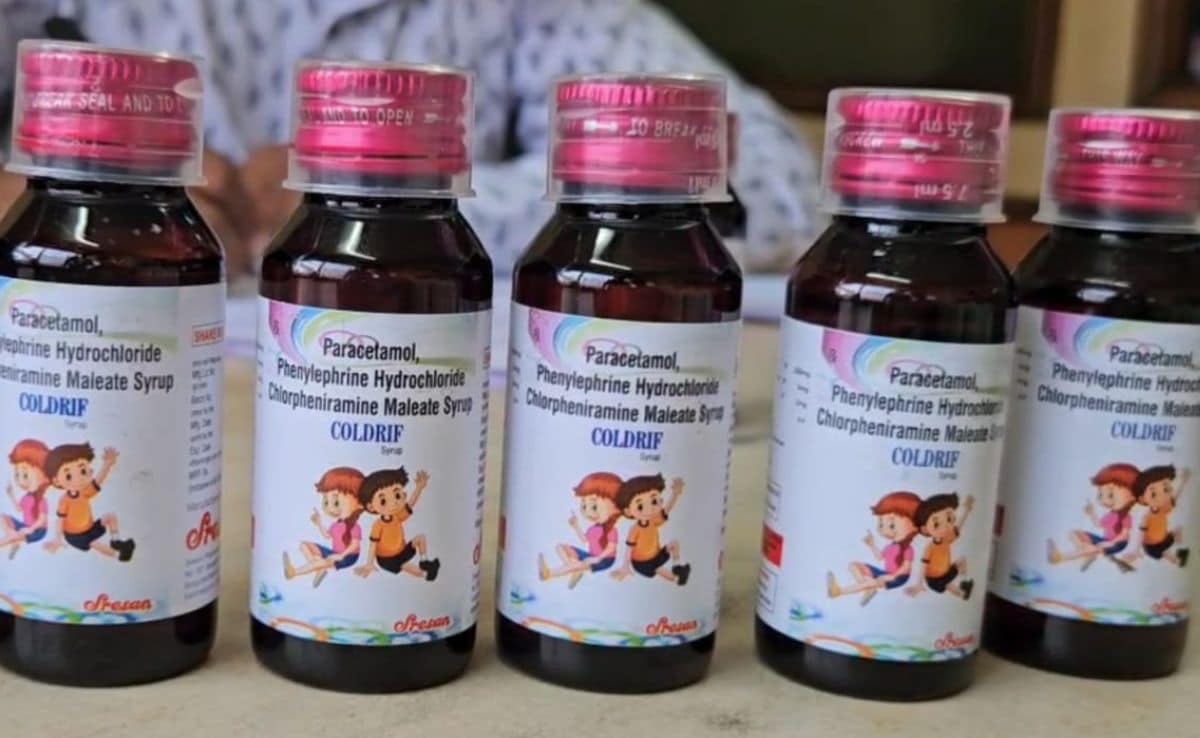
Doctor Arrested, Manufacturer Booked
The police on Sunday confirmed the arrest of Dr. Praveen Soni, a pediatric specialist at the Civil Hospital in Parasia sub-division, Chhindwara, for allegedly prescribing Coldrif — the now-banned cough syrup — to several children who later died of suspected renal failure.
Superintendent of Police Ajay Pandey told The Hindu, “Dr. Soni was taken into custody late on Saturday night after a First Information Report was lodged against him and Sresan Pharmaceuticals, based in Tamil Nadu’s Kancheepuram.”
The FIR has been registered under Sections 105 and 276 of the Bharatiya Nyaya Sanhita (BNS) and Section 27A of the Drugs and Cosmetics Act, 1940. These provisions carry severe penalties, including imprisonment up to life, for negligence and the use of adulterated drugs causing death.
According to Mr. Pandey, a Special Investigation Team (SIT) led by an Additional Superintendent of Police has been constituted to probe the case. “The SIT will soon visit Tamil Nadu and other locations linked to the case. We have also written to the Tamil Nadu police for assistance,” he said, adding that searches had been conducted at Dr. Soni’s clinic and other premises to collect evidence.
“We are also questioning him on how many patients he prescribed the syrup to, and for how long he had been recommending it,” Pandey said.
Tragic Toll and Timeline of Deaths
The scale of the tragedy is grim. Thirteen children have died in Chhindwara district — 10 from Parasia, two from Chhindwara city, and one from Chaurai — while one more child succumbed in neighboring Pandhurna. The deaths reportedly occurred over a month, beginning in early September.
Officials revealed that the first fatality occurred on September 2, when Shivam (4) died, followed by Vidhi (3) on September 5, Adnan (5) on September 7, Usaid (4) on September 13, Rishika (5) on September 15, and Shreya (2) on September 16. On September 18, after Hitansha (4) and Vikas (5) died, doctors at Nagpur’s Government Medical College and Hospital (GMCH) detected renal failure as a possible cause. That discovery shifted the focus from an assumed outbreak of acute encephalitis syndrome (AES) to a potential case of diethylene glycol (DEG) poisoning from contaminated cough syrup.
In addition to the confirmed deaths, eight children are undergoing treatment in Nagpur — four at GMCH, one at AIIMS, and three in private hospitals. Three of them are on ventilator support, while two are in critical condition, according to Dr. Manish Tiwari, head of GMCH’s Pediatrics Department.
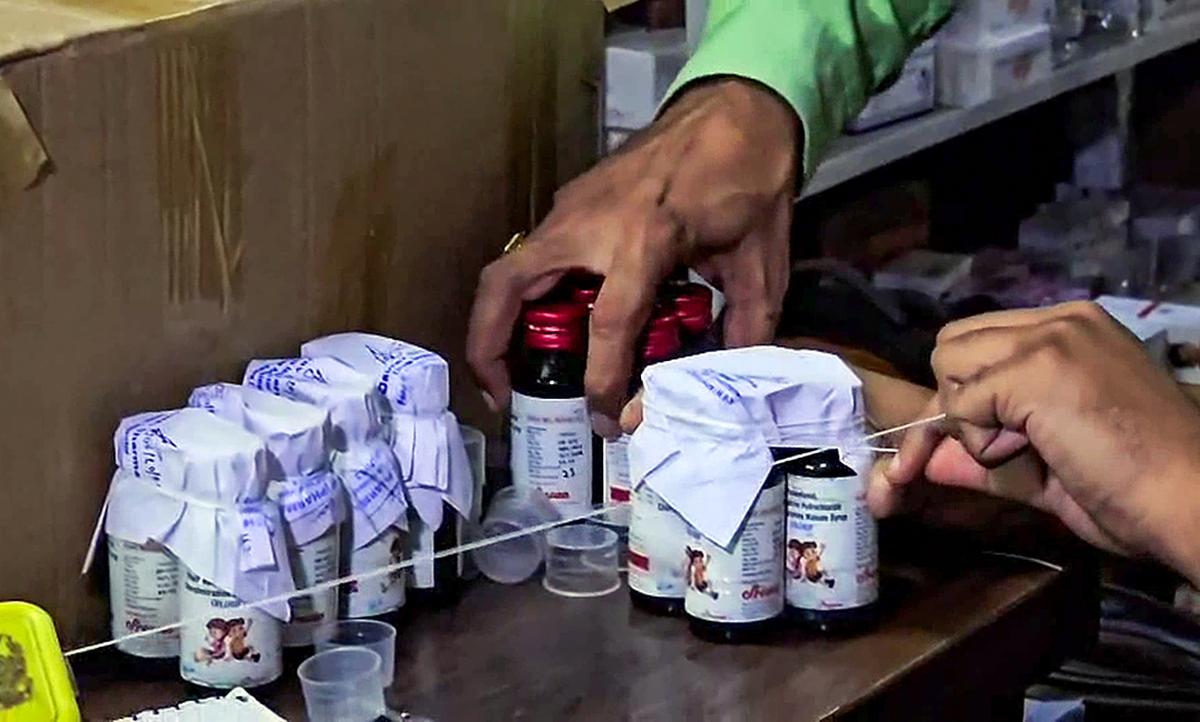
What Tests Revealed: Deadly Diethylene Glycol
A report from the Madhya Pradesh Drug Testing Laboratory confirmed the worst fears. The Coldrif syrup sample was “adulterated with diethylene glycol 46.28% w/v, which is injurious to health.”
Further tests by the Tamil Nadu Drug Control authorities on October 2 found that the syrup batch (No. SR-13, Mfg: May 2025, Exp: April 2027) contained 48.6% diethylene glycol (DEG) — a toxic chemical used in brake fluids and antifreeze. Even trace amounts of DEG are known to cause severe kidney and nervous system damage.
The report from Chennai’s Drug Testing Laboratory described the syrup as “not of standard quality and adulterated since it contains Diethylene Glycol (48.6% w/v), a poisonous substance which may render the contents injurious to health.”
Government Action: Bans, Aid, and Accountability
Acting swiftly after the lab confirmations, the Madhya Pradesh government banned the sale and distribution of Coldrif syrup and all other products from Sresan Pharmaceuticals. The Food and Drugs Administration (FDA) conducted raids on pharmacies across Chhindwara and nearby areas, seizing several bottles of the syrup.
Jabalpur Drug Inspector Sharad Kumar Jain said that Kataria Pharmaceuticals had ordered 660 bottles of the syrup from Chennai. “Out of these, 594 bottles were sold in Chhindwara, while 66 were stored. Sixteen samples were taken and sent for testing, and the remaining 50 bottles were frozen with instructions not to sell them,” he said.
Deputy Chief Minister and Health Minister Rajendra Shukla asserted that the government responded promptly. “We took strong measures as soon as the issue came to our notice. We wrote to the Tamil Nadu government on October 1, have arrested those responsible, and banned the syrup. The government is very sensitive about this issue,” he said.
Chief Minister Mohan Yadav announced ₹4 lakh in ex-gratia aid for each bereaved family, a sum that, according to Chhindwara Additional District Magistrate Dhirendra Singh, has already been disbursed. Singh added that a team of health officials is monitoring the treatment of the surviving children admitted in Nagpur.
Meanwhile, the Maharashtra government also imposed a ban on Coldrif after six children treated at GMCH-Nagpur died of renal failure caused by diethylene glycol toxicity. “We have instructed all public hospitals in Nagpur spanning six districts not to prescribe this syrup,” said Dr. Shashikant Shambharkar, deputy director of health services.
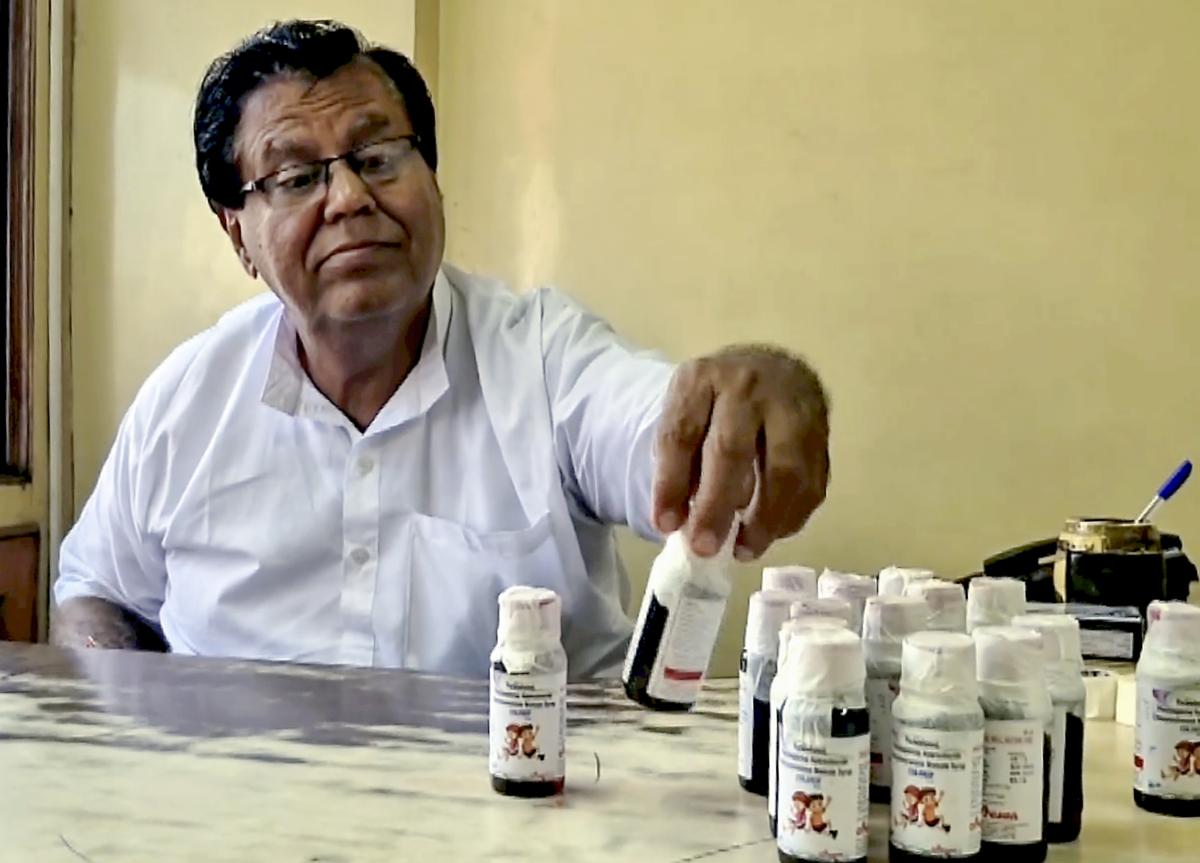
Negligence and Suspension of the Doctor
Following Chief Minister Yadav’s directions, Dr. Soni was suspended for “negligence in children’s treatment.” The order issued by Public Health and Medical Education Commissioner Tarun Rathi stated that Soni prescribed Coldrif to children at his private clinic, causing high fever, kidney problems, and difficulty in urination.
The order read: “Had he diagnosed the children’s problems properly and given them the right treatment, possibly they could have been saved.” Dr. Soni has been attached to the regional health department office in Jabalpur pending investigation.
However, the doctor’s arrest has sparked anger among his colleagues. Dr. Kalpana Shukla, president of the Indian Medical Association’s Chhindwara unit, warned, “If Dr. Soni is not released, all doctors will launch an indefinite strike from Monday.” The association claims the doctor is being scapegoated while systemic lapses remain unaddressed.
Protests and Political Fallout
The tragedy has also taken a political turn. The Opposition Congress has announced protests across Chhindwara to condemn what it calls the government’s “apathy and delayed response.” In a statement, the party said workers will hold a sit-in fast at Fawara Chowk to demand higher compensation for victims’ families and accountability from both health and regulatory officials.
Meanwhile, Additional Collector Dhirendra Singh confirmed that the body of two-year-old Yogita Thakre, the latest victim, was exhumed on Sunday for post-mortem after her family demanded a re-examination. “Samples of 1,102 children have been collected so far. A total of 5,657 tests have been conducted, with results of 4,868 already received,” he said.
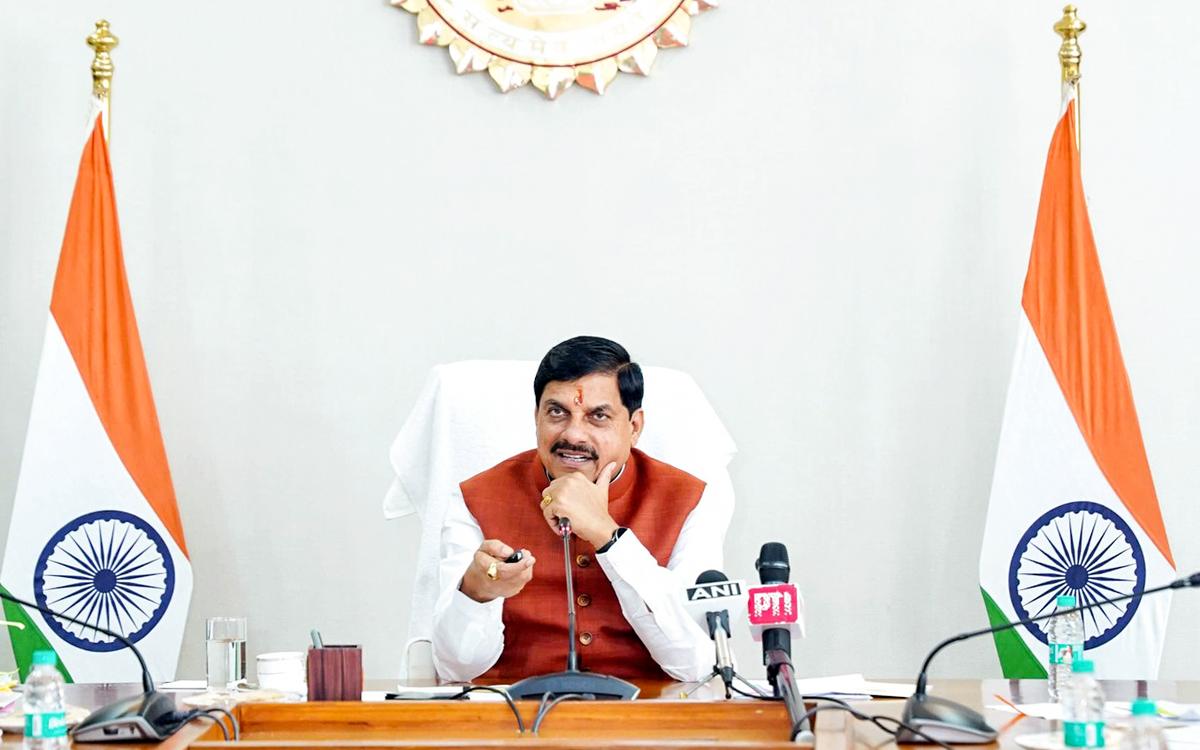
Investigations Extend Beyond Madhya Pradesh
The case has triggered a multi-state probe. The Tamil Nadu police have been asked to assist in investigating Sresan Pharmaceuticals, while the Central Drugs Standard Control Organisation (CDSCO) has launched risk-based inspections at manufacturing units of 19 drugs — including cough syrups and antibiotics — across six states.
The Tamil Nadu government, too, has banned Coldrif after reports of at least three similar deaths in Rajasthan due to suspected cough syrup-induced kidney infections. Rajasthan had earlier prohibited the sale of syrups containing Dextromethorphan and all 19 medicines supplied by Kaysons Pharma, another firm under scrutiny.
Samples from the affected children have been sent to the National Institute of Virology (NIV), Pune, for further analysis, while toxicology reports from multiple labs are awaited to determine the full extent of contamination.
Larger Public Health Concerns
The tragedy has reignited national debate over the safety of cough syrups and the regulation of small-scale pharmaceutical manufacturers. India has witnessed multiple such incidents in recent years, where DEG-contaminated syrups led to fatalities among children. Experts have repeatedly warned that inadequate quality checks, poor storage, and unregulated local manufacturing can result in deadly contamination.
Paediatric intensivist Dr. Anupam Bahe, who treated six children from Madhya Pradesh at Nelson Hospital, Nagpur, said: “Besides Coldrif, some of our patients were also given two other locally branded cough syrups. Two children were administered different brands and both remain critical.”
He added that the symptoms among all affected children were similar — acute kidney failure, fever, and complete urine retention — classic signs of diethylene glycol toxicity.
The Road Ahead
As grieving parents bury their children, the state and central agencies face mounting pressure to ensure accountability. The SIT in Madhya Pradesh is coordinating with Tamil Nadu’s drug authorities to trace the supply chain of Coldrif, determine whether contamination occurred during manufacturing, and identify other markets where the product was distributed.
Superintendent of Police Ajay Pandey reaffirmed, “The SIT will travel to Tamil Nadu to examine Sresan Pharmaceuticals’ facilities and obtain all related documents. We are determined to get to the root of this tragedy.”
The tragedy has served as a grim reminder of the catastrophic consequences of negligence — in both medical practice and pharmaceutical oversight. As investigations progress, families await justice and answers to a haunting question: how a simple syrup meant to soothe a child’s cough turned into a poison that stole their lives.
With inputs from agencies
Image Source: Multiple agencies
© Copyright 2025. All Rights Reserved. Powered by Vygr Media.

